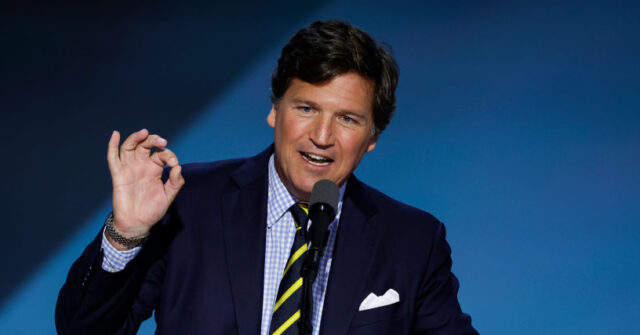Tucker Carlson’s recent trip to Moscow to interview Russian Foreign Minister Sergei Lavrov has garnered significant attention, highlighting concerns about deteriorating U.S.-Russia communications and the threat of nuclear conflict. Carlson articulated his frustration regarding the U.S. government’s obstruction in facilitating a dialogue with Ukrainian President Volodymyr Zelensky. He stated that despite numerous attempts to secure the interview, their requests have been consistently blocked by U.S. officials, illustrating a broader issue of communication impediments that he argues could lead the world closer to a “nuclear holocaust.” In discussing these topics in a promotional trailer for the upcoming interview, Carlson emphasized the urgent need for dialogue to avert catastrophic escalation between the two nations.
The Russian government has confirmed the completion of Carlson’s interview, noting that it lasted over an hour and a half and covered various crucial subjects, including Russian-U.S. relations, the ongoing war in Ukraine, and broader global geopolitical dynamics. Maria Zakharova, spokesperson for the Russian Foreign Ministry, reiterated Lavrov’s views, which contain familiar allegations from the Russian perspective, claiming that Ukraine has engaged in terrorist acts against its own citizens. This exchange positions Carlson as a unique conduit for Russian narratives amidst an environment of heightened international tension, thereby raising questions about media representation in times of crisis.
Carlson’s previous engagement with Russian President Vladimir Putin marked him as the first Western journalist to have such a discussion following the 2022 invasion of Ukraine. His willingness to engage with controversial figures in journalism led to criticism from various mainstream media outlets, which questioned the ethics and motivations guiding his interviews. In defense of his actions, Carlson articulated the journalistic obligation to provide comprehensive coverage of global events without censorship, positioning access to various perspectives as an indispensable facet of maintaining informed public discourse.
Despite Kyiv’s apparent dismissal of Carlson’s requests, implying allegations of him being a Russian sympathizer, Carlson claimed that the real barrier to interviewing Zelensky lies with the U.S. government rather than the Ukrainian administration. He recounted experiences of reaching out to Zelensky’s team but asserted that U.S. governmental pressures have thwarted these efforts, leading to a frustratingly opaque information landscape regarding the war and U.S. foreign policy. This revelation sparked concern over the extent of U.S. influence in limiting journalistic inquiry, prompting discussions on the implications for transparency in international relations.
Carlson also illuminated the worrying lack of communication channels between Washington and Moscow, criticizing Secretary of State Antony Blinken’s decision to sever contacts between the two governments. He articulated the potential dangers emanating from such isolation, particularly the failure to negotiate de-escalation strategies reminiscent of Cold War diplomacy. According to Carlson, the current U.S. stance has not only disregarded historical lessons of diplomatic engagement but has embarked on actions, such as permitting strikes against Russian territory using U.S. weapons, that heighten the risk of nuclear confrontation, even more so than during the tense period of the Cuban Missile Crisis.
Lastly, Carlson plans to release the interview with Lavrov soon but has not specified a timeline. Lavrov himself has been an influential figure in Russian diplomacy, often delivering stark warnings against Western involvement in Ukraine and emphasizing the risks involved should NATO troops be deployed in the region. These dialogues reflect a precarious geopolitical landscape and underscore the urgent need for proactive engagement to mitigate the risks of escalation. Carlson’s initiatives, alongside Lavrov’s critiques of U.S. leadership, spotlight the complexity of media narratives that shape public understanding of international conflicts, making clear the stakes involved in facilitating communication between adversaries.

